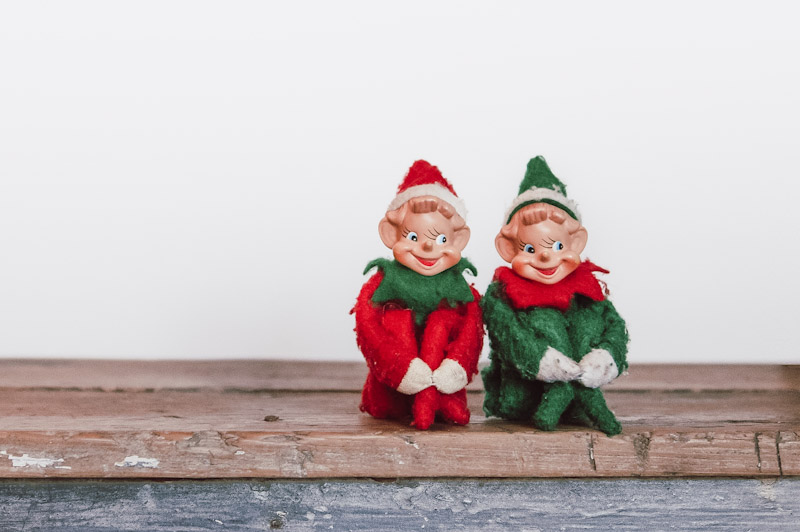Be Merry and Bright: Celebrating the Holidays With Sober Family and Friends
Make your festivities inclusive and inviting for sober loved ones! All Sober's Maeve O'Neill shares some tips on being a supportive sober ally and welcoming host

Holidays are a time of joy and celebration, yet they can be difficult for people choosing sobriety. There’s no denying alcohol plays a big role in the season for many; recent surveys confirm as much. According to one, 48% of respondents engaged in heavier alcohol use during family holiday gatherings than during other social occasions. Another, alarmingly, found 47% of men and 40% of women bingeing on New Year’s Eve.
And that’s just one reason the holidays can be uncomfortable for those who are trying to maintain sobriety. It’s a time that can be emotionally draining, stressful, awkward and all-around triggering to folks in recovery. That’s why we recently asked prominent voices in the recovery world for their tips on handling the holidays if you’re staying sober.
But what can you do if it’s a loved one who’s abstaining, whether in recovery or for other reasons? In the spirit of the season, you’ll want to make them feel warm, welcome and safe. So All Sober EVP of Addiction and Recovery Maeve O’Neill recently spoke with Well+Good to share some advice, dos and don’ts for family and friends as well.
Someone else’s choice not to use alcohol “can make you question your own choice to use it, which can be uncomfortable,” says Maeve O’Neill. That discomfort may then “cause you to make jokes or be unsupportive or even dismissive of their choice not to use alcohol, perhaps by encouraging them to ‘just have one drink,'” she says.
This type of language can also spring from the common assumption among people who drink that people who don’t drink are “upset with them for drinking,” says addiction psychiatrist Dr. Smita Das. “But it’s far more likely that the person who feels like they’re being judged is actually reacting to their own internal dialogue about how they feel about their drinking, rather than anything that the sober person did or said.” In that realm, it’s important to remember that someone’s choice not to drink, even if it’s at your holiday party, is not a reflection of you, how they think about you, or your own drinking preferences; it’s about them. So, it doesn’t make much sense to try to convince them otherwise.
Not to mention, suggesting that someone who isn’t drinking “just have one drink” is a particularly bad idea if they’re in recovery. “For this person, having a drink isn’t the same thing as having a serving of dessert for someone who is on a diet,” says Dr. Das. “When it comes to someone in recovery who may be counting their days or worried about that first step on a slippery slope, you don’t want them to trip on the ice with that ‘just one drink’ and fall.”
Reality check: It’s possible to have just as much fun and enjoy the holidays without alcohol, says O’Neill, “so, celebrating with people who don’t drink alcohol is not difficult or boring.”
Get more tips on celebrating (with) your sober friends this season; read the full article at Well+Good.
More Help & Information
Sobriety vs. Recovery: What's the Difference?
Are the concepts themselves up for debate? Do they require certain treatments, or abstinence from everything? It's complicated! And new ways of thinking are changing the conversation.
Now Elite NFL Players, They First Tackled Addiction | News Roundup
All Sober compiles the best of the latest headlines. Here's your addiction and recovery news for the week of Feb. 19, 2024!
Help Them Help You: Explaining Your Mental Health to Your Family
Your mental health can affect — and be affected by — your loved ones. Here's how to discuss it with them so everyone can heal.
Dry January (and Beyond): The Possibilities Are Endless
There's never been a better time to go sober. Whether you're trying it out this month or already living the life, join us for some tips, ideas, inspiration — and maybe even new friends.
Sober Holiday Tips: Meeting 'Share-a-Thons'
Need to get out of the house for a bit and see some friendly sober faces? Recovery support group meeting marathons run 24/7 from Christmas Eve through New Year's Day.
What Happens After an Intervention?
Your loved one agreed to get treatment for addiction during their intervention — or not. Here's what you need to know about what comes next.
We're in This Together: Building a Healthy Sober Support Network
You are the captain of your recovery, but you don't have to do it alone. A sober support network will lift you up in tough times and celebrate your triumphs.
Real-Life Recovery Tips: Phone a Friend
When you're traveling, you can take your sober support network with you — right in your pocket. Rocker Kasim Sulton shares his top recovery tip in this video.











